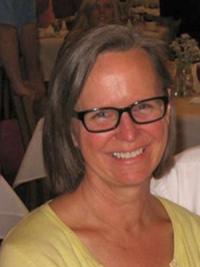Research Spotlight: Kay Halasek

Each month, the Communications Team reaches out to members of the Department of English faculty and asks them to elaborate on a current research or creative project they are working on or have recently completed. For this month, we asked Professor Kay Halasek about her research on writing program administration.

In your own words, as the expert that you are, can you explain (as though to a colleague) the overview of your project?
Making Administrative Work Visible: Data-Driven Advocacy for Understanding the Labor of Writing Program Administration began as a collaborative effort among the six editors to make the work we do as WPAs quantitatively visible, thereby creating a more nuanced understanding of WPAs’ lived labor experiences.
The collection is, of course, set within a time and context in which COVID-19 has upended how higher education operates, what spaces we work in, how we plan for the future. Every WPA and writing instructor has had to change course—many times over—resulting (as it has for all faculty) in unexpected, additional labor. Because we lead programs typically serving incoming students, WPAs tend to realize the impact of fluctuations in higher education trends first and must respond quickly. And because writing programs are often some of the largest programs on a college or university campus, the labor required to pivot to online learning is significant, even overwhelming.
Against this backdrop, Making Administrative Work Visible leverages several themes—visibility, contingency, collaboration, loneliness, advocacy—as the lenses through which contributors tell their stories and situate their empirical research studies, which collectively make visible and tangible the everyday realities of WPAs that need to be intentionally uncovered, understood and amplified (and thus legitimized and empowered).
Now, could you shorten this description into one sentence that uses accessible language?
Making Administrative Work Visible brings to readers the stories and research studies of over three dozen writing program administrators as they investigate how the challenges of political and social upheaval, a worldwide pandemic and radical changes in higher education impact their lived professional lives as campus leaders and teachers of writing.
In what ways is your research significant?
Although thousands of individuals across the country serve as WPAs (writing program administrators)—leading first-year or advanced writing programs, writing across the curriculum (WAC) programs and writing centers—very little descriptive, empirical data exist that tell us how those administrators spend their time. That lack of data creates significant challenges for WPAs, who are often intellectually marginalized, overworked, undercompensated and underappreciated. Making Administrative Work Visible: Data-Driven Advocacy for Understanding the Labor of Writing Program Administration seeks to fill that data gap by bringing together over two dozen researchers to address some of the most pressing labor-related issues facing writing programs: confronting the inequities of contingent labor, promoting anti-racist pedagogies, and meeting the challenges and calculating the professional consequences of radical advocacy.
Are you working with any colleagues or collaborators (e.g. grad students)?
The edited collection is a collaborative effort among six colleagues: Leigh Graziano (Western Oregon University), Susan Miller-Cochran (University of Arizona), Frank Napolitano (Radford University), Natalie Szymanski (Buffalo State-SUNY), Remi Hudgins (Ohio State) and me. Remi is a PhD student in the WRL (rhetoric, composition and literacy Studies) program in the Ohio State English department.
Is the project being funded or supported by any individuals or organizations that you would like us to acknowledge?
The project is not supported or funded by an organization but does have its origins in a longitudinal study that five of us (Leigh, Susan, Frank, Natalie and I) conducted in 2016 that led to the publication of “A Return to Portland: Making Work Visible through the Ecologies of Writing Program Administration” in WPA: Writing Program Administration, 43.2 (2020).
Where do you see this project going in the future?
The collection has been accepted by Utah State University Press and will likely be published in early 2022. We on the editorial team hope that the collection will inspire the next generation of writing program administrators to employ empirical research methods to both account for their work and advocate for radical institutional and programmatic change to support undergraduate student writers, graduate student instructors and contingent faculty.
What’s next for you? What would you like to work on once this project is completed?
I plan to return to a series of projects with Ohio State WRL colleagues Scott DeWitt and Ben McCorkle related to a 2012 Bill & Melinda Gates Foundation Postsecondary Success Grant. The Gates grant funded a MOOC (massive open online course), “Composing for Public Audiences: Writing, Rhetoric and Research.” That MOOC was among the first ever focused on college-level writing and reached over 50,000 participants worldwide over five years. Scott, Ben and I are co-authors (with several other former colleagues and graduate students from the WRL program) on numerous articles, book chapters and scholarly presentations related to the MOOC.
